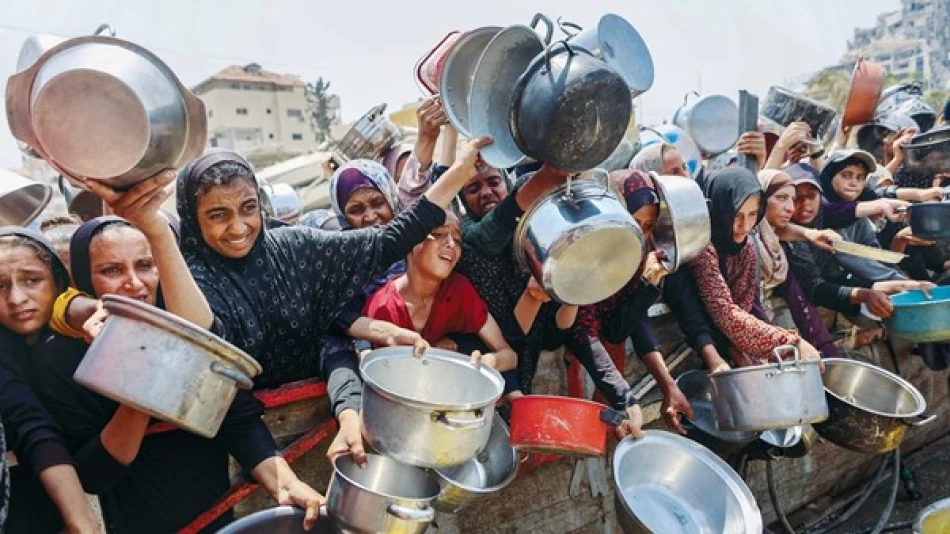
UN Deputy Spokesperson Warns of Escalating Humanitarian Crisis in Volatile Region
Gaza's Humanitarian Crisis Reaches Breaking Point as UN Warns of "Unprecedented Catastrophe"
The United Nations is sounding the alarm over what it describes as one of the world's worst humanitarian crises, as Gaza's population faces widespread famine amid ongoing conflict and severely restricted aid access. With 235 people now confirmed dead from starvation and malnutrition—including 106 children—the territory's collapse of basic infrastructure and supply chains threatens to trigger what UN officials call an "uncontainable humanitarian explosion."
UN Official: Current Crisis Among World's Worst
Farhan Haq, Deputy Spokesperson for the UN Secretary-General, told reporters that the combination of continued fighting and humanitarian access restrictions is creating conditions for an "unprecedented humanitarian catastrophe." The warning comes as eight additional deaths from famine and malnutrition were recorded in just 24 hours, including three children.
"The delay in humanitarian aid delivery is not only due to field conditions," Haq explained, pointing to complex procedures that obstruct the entry of food, medicine, and fuel at a time when the majority of Gaza's population faces genuine famine.
Infrastructure Collapse Paralyzes Relief Efforts
The humanitarian system in Gaza has become unable to cope with the crisis's consequences, according to UN assessments. The destruction of hospitals, collapse of water and sewage networks, and near-complete halt of supply chains have created a perfect storm of humanitarian disaster.
Critical Infrastructure Failures
The systematic breakdown includes:
• Medical facilities destroyed or non-functional
• Water and sanitation systems collapsed
• Supply chains operating at minimal capacity
• Food distribution networks severely compromised
International Law and Accountability Questions
Haq emphasized that under international law, Israel bears direct responsibility as the occupying power for Gaza's civilian population. This obligation includes ensuring unobstructed humanitarian aid access—a fundamental right for civilians during conflict, not a privilege granted by occupying authorities.
The UN official's statement reflects growing pressure within international circles to activate accountability mechanisms against those impeding humanitarian access, citing violations of the Geneva Conventions that require occupying powers to secure civilian humanitarian needs.
Escalating Death Toll Signals Systemic Failure
The Palestinian Ministry of Health's latest figures reveal the crisis's acceleration, with famine-related deaths climbing steadily. The disproportionate impact on children—representing 45% of starvation victims—underscores the vulnerability of Gaza's youngest residents to the compound effects of conflict and aid restrictions.
International Response Under Scrutiny
The mounting casualties raise questions about the effectiveness of international humanitarian mechanisms designed to protect civilian populations during conflicts. Unlike previous humanitarian crises in Syria, Yemen, or Afghanistan, Gaza's unique status as an occupied territory creates specific legal obligations that international bodies argue are being systematically violated.
Implications for Regional Stability
The deteriorating humanitarian situation extends beyond immediate human suffering to pose broader regional stability risks. Historical precedents from other protracted humanitarian crises suggest that unaddressed civilian suffering can fuel long-term instability and radicalization, potentially affecting neighboring countries and international security interests.
The UN's increasingly urgent warnings signal that the international community may face difficult choices about intervention mechanisms if current diplomatic and aid delivery approaches prove insufficient to prevent what officials describe as an "uncontainable humanitarian explosion."
Most Viewed News

 Layla Al Mansoori
Layla Al Mansoori






